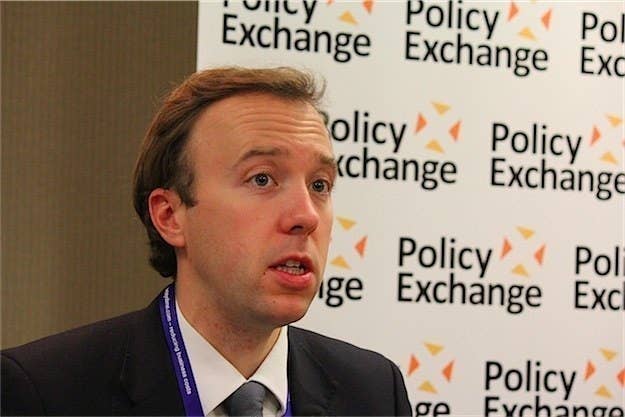
Three national charity membership organisations have written to Cabinet Office minister Matt Hancock to say they believe the government's controversial charity-gagging clause could have a negative impact on disabled, LGBT, and black and minority ethnic (BME) people.
The clause, which is ostensibly designed to prevent charities from using taxpayer-funded grants to lobby the government or parliament, has provoked furious criticism from the voluntary sector, as well as concerns from the scientific and educational communities.
They fear charities and researchers will be unable to tell the government about lessons and findings that have come about as a result of grant-funded work, and that academics could be unwilling to take up advisory positions in government.
The government recently suspended the clause, which was due to come into effect on 1 May, while it listens to submissions. Yesterday BuzzFeed News revealed that on the day it made that decision, the government received a letter from the chief executive of the housing charity Shelter, asking it not to use the charity's name in defence of the clause – which it had done on at least three occasions.
And now the government has also received a letter signed by the chief executives of the Charity Finance Group, which represents 1,400 charities and promotes financial leadership, LGBT Consortium, the largest network of LGBT projects in the UK, and Voice4Change England, the national membership organisation for the BME voluntary sector.
In all, around 2,000 charities serving people with disabilities, LGBT people, and BME people are understood to be represented by the organisations.
The letter says:
This clause will have a significant negative impact on the public, restricting the ability of charities to inform policy makers within government and Parliament.
We are particularly concerned about the impact that this will have on disadvantaged groups such as those with disabilities, those from black and ethnic minority backgrounds and those from LGBT communities. These groups are often adversely impacted by government policies due to a lack of communication and consultation between policy makers about the needs of these groups. A lack of available and credible data on many minority communities also impact on their abilities to be fully accounted for as policy develops.
The Cabinet Office did not respond to a request for comment on the letter, but it is understood that Hancock has received it and will be issuing a reply.
On Thursday, Caron Bradshaw, the chief executive of the Charity Finance Group, said: "There is general agreement that this anti-advocacy clause has been badly thought through, but it will have a particularly negative impact on those charities working with disadvantaged communities."
She said: "We are not just silent service-providing machines. Charities have a duty to speak up for their beneficiaries and make sure that their needs are being considered by government. It was for this reason that governments of all stripes respected the compact between government and the voluntary sector.
"We welcome the government's decision to pause and reflect on the feedback received so far. But we also need to see what consideration they have given to the impact of this clause. A big part of [that] must be in the impact on [the] disadvantaged groups that most need charities to give them a voice when it comes to policymaking."
Today the three largest umbrella organisations across the voluntary and social enterprise sectors – the National Council of Voluntary Organisations, the Association of Chief Executives of Voluntary Organisations, and Social Enterprise UK – issued a joint statement setting out their expectations for what the government should do during the pause.
They asked for a "clear and comprehensive" consultation, saying: "This would be an opportunity for it to put forward its own case, and any revised proposals, in a proper and transparent way so they can be fully scrutinised and commented on."
They added: "Ministers have already acknowledged that the government holds little evidence on which to base their policy, that its blanket implementation was not appropriate, and that the government has not yet attempted to assess the impact it may have on disadvantaged groups. An equality impact assessment and independent evaluation of the impact of the clause to date should clearly be part of the next steps."

